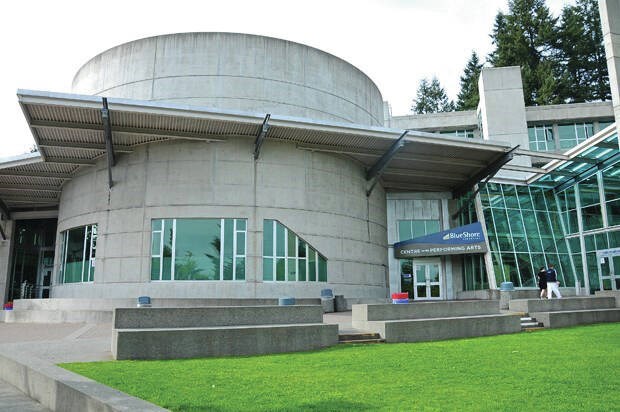The film industry is notoriously a tough one to crack, and it’s no secret that statement rings especially true for directors from Indigenous backgrounds. Such under-representation in the industry is the main driving force for Capilano University’s new program, one that aids emerging, Indigenous filmmakers from across British Columbia and Alberta.
The Assistant Director training workshop, launched by the university’s Indigenous Digital Accelerator program, provides students with on-set experience, an Indigenized curriculum, and certifications required to prepare them to enter the esteemed Directors Guild of Canada Trainee Assistant Director program.
“There is a severe under-representation of Indigenous filmmakers working as assistant directors in British Columbia and Alberta,” said Doreen Manuel, director of the Bosa Centre for Film & Animation and Inclusive Community Projects at CapU.
“To my knowledge, there are only two Indigenous assistant directors in B.C. working on unionized film productions.”
Manuel said the program tends to graduate students who want to be writers, directors and producers alongside those hoping to work in the camera department, or in grip and lighting.
Across three weekends, participants learn script breakdowns, set protocols, call sheets, daily production reports and logistics training critical to the coveted assistant director role.
Those enrolled also receive additional training in order to receive their Motion Picture Industry Orientation, Set Safety and WHMIS certifications.
For students from Indigenous backgrounds, the workshop provides an opportunity to tell their own historical and cultural stories through film, at a time when so few make it to the big screen.
“It’s important to me that Indigenous stories be told by Indigenous key creatives,” said Rosie Johnnie-Mills, a student from the Skidegate Haida and Xinipsen Cowichan Nations.
“This program empowers me to transition from being in front of the camera to behind the camera, allowing me to control the narrative of my life and world views.”
Allen Belcourt, from the Métis Nation of Alberta, said he sees the program as an entryway, the first step in finally being able to create his own original film content.
“I hope to gain a better understanding of the on-set protocols and specific duties of different members of a film crew, as well as a big picture understanding of the whole filmmaking process from start to finish,” he said. “There is a growing Indigenous film community in Alberta, and I want to play a greater role in Indigenous storytelling as a film director and producer.”
The training included 14 students from Nations across B.C. and Alberta, with the first two weekends comprising virtual classes and the final session, from March 17-19, taking place at CapU’s Bosa Centre for Film and Animation. Visit the .
Mina Kerr-Lazenby is the North Shore News’ Indigenous and civic affairs reporter. This reporting beat is made possible by the .



